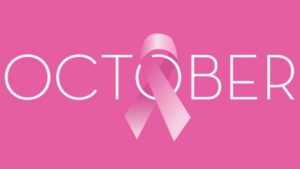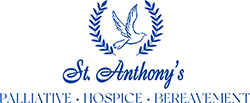
Ever notice how October is filled with falling leaves, pumpkin spice lattes, and a lot of pink? It’s because October is Breast Cancer Awareness Month.
Every year in the United States, close to 250,000 cases of breast cancer are diagnosed in women and close to 2,300 cases in men. Yes, even men can get breast cancer! Out of those cases, nearly 42,000 women and 510 men unfortunately die from breast cancer.
Symptoms
Some of the common symptoms of breast cancer include:
- New lump in breast and/or armpit
- Thickening or swelling of part of the breast
- Irritation or dimpling of breast skin (orange peel skin)
- Redness or flaky skin in the nipple area or breast
- Unusual invert of the nipple or pain in nipple area
- Nipple discharge other than breast milk, including blood
- Any change in the size or shape of the breast
- Pain in any area of the breast
If you have any of these symptoms, please contact your physician right away to schedule testing. Some women and men can have lumps in breast tissue that are not cancerous. Always check with your doctor if you notice any lumps or unusual appearance in your breast tissue.
Risk Factors
Some of the common risk factors for breast cancer include:
- Age. The risk for breast cancer increases with age.
- Genetic Mutations. Some women inherit certain genes such as BRCA1 & BRCA2, which carry a higher risk for breast and ovarian cancers.
- Reproductive History. Beginning your menstrual cycle before age 12 or starting menopause after age 55 increase your chances of breast cancer due to extended hormone exposure.
- Dense Breasts. Dense breast tissue means there is more connective tissue than fatty tissue, which makes it harder to detect cancer,
- Personal History. Having breast cancer once makes a person more susceptible to getting it again.
- Family History. Family history of breast or ovarian cancer raises risk of developing breast cancer.
- Previous Radiation Therapy. Women who received radiation therapy to their chest or breasts before age 30 have a higher chance of getting breast cancer.
- Diethylstillbestrol (DES). This drug was given to some pregnant women in the US between 1940-1971 to prevent miscarriage. It has been linked to breast cancer for women who took the drug as well as the children who’s mother took the drug while pregnant with them.
Risk Factors that can be changed:
- Not Being Physically Active. Get up and moving! Exercise lowers a woman’s chance of developing breast cancer.
- Being Overweight/Obese After Menopause.
- Taking Hormones. Some forms of replacement hormones, including replacement of both estrogen and progesterone, taken during menopause can increase risk for breast cancer when taken for more than 5 years. Certain birth control pills are also linked to breast cancer.
- Pregnancy History. Having the first pregnancy after 30, not breastfeeding, and never carrying a child to full-term can increase breast cancer risk.
- Alcohol. Studies have shown that breast cancer risk increases with the more alcohol a woman drinks.
Protecting Myself & Treatment Options
Test early and regularly! Regular yearly mammograms, as well as self-exams done monthly, help catch breast cancer early, which increases survival rate. Schedule your yearly mammogram and check-up with your doctor. Deaconess even offers a mobile breast cancer van which provides mammograms.
For those women and men who get diagnosed with breast cancer, there are several options to help beat this cancer. Surgery, chemotherapy, hormone therapy, biological therapy, and radiation are most often used.
In conjunction with aggressive, curative treatments, St. Anthony’s offers Palliative Care. This helps manage symptoms associated with the disease and side effects to the treatment, it provides education to the patient and family, and we help set the patient up with community resources to remove stress. And our palliative care program comes to you! No extra appointments to get to and we work in conjunction with your physician/specialist to help develop your care plan. Give us a call at (270) 826-2326 to learn more about Palliative Care!
Source: https://www.cdc.gov/cancer/breast/index.htm
